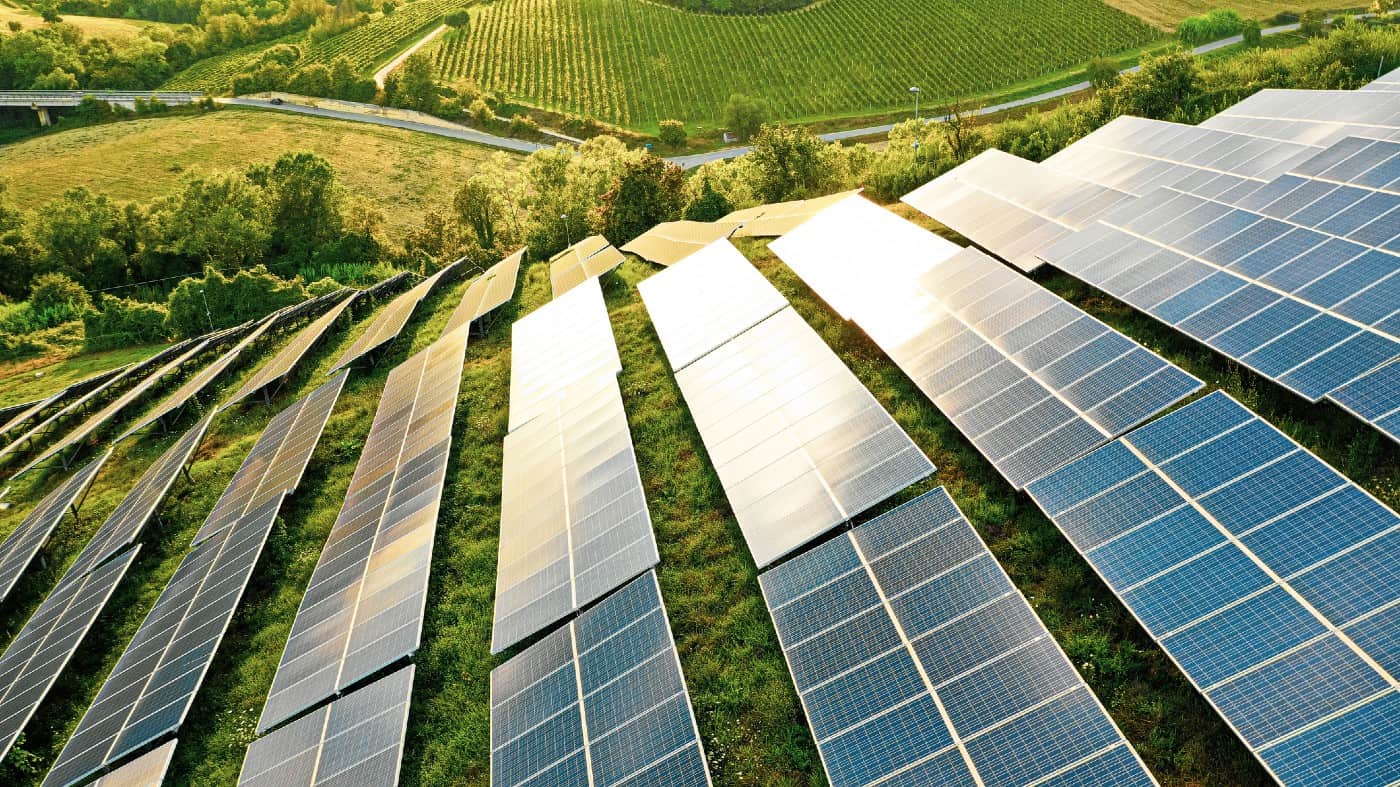According to S&P Global Market Intelligence, electricity generation from solar and wind power is set to increase in the US. This outlook was reiterated by a recent Economist Intelligence Unit report explaining that as world energy consumption rises next year, solar and wind power will benefit the most. This has again got me thinking about the strong case for investing in renewable energy stocks.
A renewable energy ETF
For my own portfolio, rather than investing in individual shares, I like the idea of using an ETF (exchange traded fund). This allows me to invest in several companies while just holding one stock and ETFs usually have low ongoing charges.
The one I’m contemplating is iShares Global Clean Energy UCITS ETF (LSE: INRG). This tracks the performance of the S&P Global Clean Energy Index, which measures the performance of companies from both developed and emerging markets. It also takes into account the carbon footprint of these companies.
This ETF is large at over $6bn, it’s well established (launched in 2007) and has good trading volume. I think the ongoing charge at 0.65% is reasonable.
Presently this ETF has 76 holdings, spread over a number of countries and across a variety of renewable energy sectors. I take comfort from this fund being diversified in terms of countries and companies. If any one or two of the companies get into problems then this ETF should hold up pretty well. I also like that it pays a dividend, albeit small and currently standing at 0.73%.
Looking at the holdings, there are some that I think will benefit from a further tilt towards solar and wind power. For example, Enphase Energy is the largest holding in the fund, accounting for almost 9%. This is a solar energy company, which among other things, produces a critical component to convert solar energy into electricity.
Should I invest?
There’s a compelling case for me to invest in renewable energy stocks, I feel. Not only is it an ethical sector, but this area is likely to benefit from international government support over the next decade.
However, year-to-date performance has been poor. At the time of writing, the ETF is down around 20% for the year and is about flat over a 12-month period.
The lacklustre performance is due to a variety of reasons. First, some of the US companies in this fund will have suffered because of bad weather affecting their output and therefore their earnings (for example, in Texas). Second, the energy supply squeeze all around the world at the moment may have seen money move into more traditional energy companies.
Despite that, over the last five years, the fund is up around 160%. This gives me confidence in the long-term outlook for this ETF.
I could be wrong, but I’m upbeat about renewable energy stocks and this ETF. For this reason, I’m seriously considering adding iShares Global Clean Energy UCITS ETF to my portfolio.







